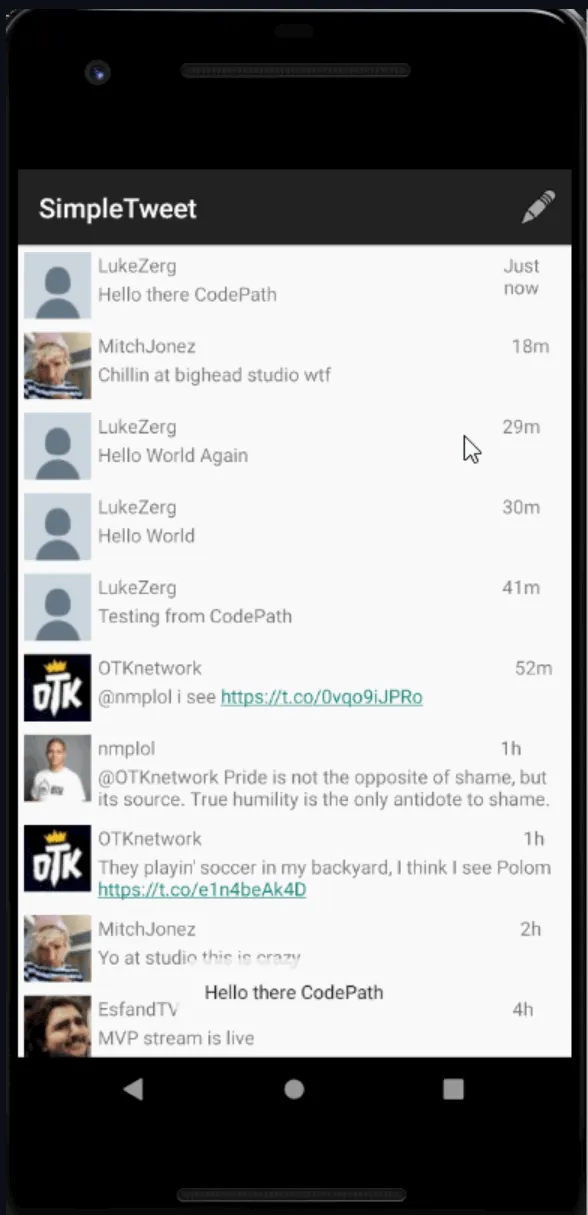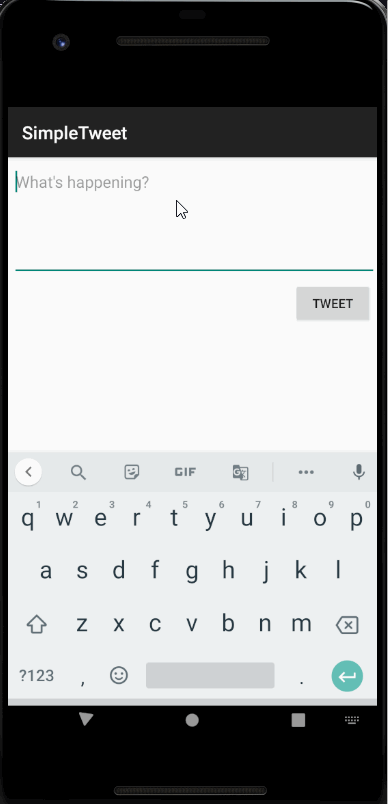
SimpleTweet
An Android app written in Java that allows users to view and create tweets using the Twitter REST API, offering a streamlined and simplified alternative to the native Twitter application.
Role
Software Developer
- Timeline
- October 2021
Technologies
- Java
- Android
Tools
- Git
- GitHub
- Android Studio
Background
SimpleTweet is a minimalistic Android application built with Java that interfaces with the Twitter REST API. The project aimed to create a streamlined alternative to the native Twitter app, focusing on core functionality and simplicity. I handled the Android development, focusing on OAuth authentication, timeline display, and tweet composition features.
Solution
SimpleTweet implements OAuth authentication to securely connect users with their Twitter accounts. The application displays the user's timeline with infinite pagination, allowing seamless browsing through tweet history. I integrated tweet composition functionality with a character counter and real-time validation. The app features clickable links within tweets and automatically refreshes to show newly posted content without requiring manual updates. All API interactions follow Twitter's REST API guidelines for secure data transmission.
Process
I started by prioritizing core user stories, focusing on authentication, timeline viewing, and tweet creation as essential features. I implemented OAuth flow for secure Twitter account connection, handling authentication tokens and session management. I developed the timeline interface using RecyclerView with pagination logic to load additional tweets as users scroll. I built the tweet composition screen with character counting and validation, then integrated the API endpoint to post new tweets. Throughout development, I refined the UI for better usability and tested API integration thoroughly.
Final Product

Impact
The application successfully delivers a functional Twitter client with core features including OAuth authentication, timeline viewing, and tweet composition, providing users with a streamlined alternative to the native Twitter app. By securely integrating the Twitter REST API to fetch and post data, the project demonstrates practical API integration skills and understanding of OAuth authentication flows. The simplified interface provides a focused experience for Twitter interaction, reducing distractions while maintaining essential functionality.
Reflection
This project provided practical experience with OAuth authentication flows and REST API integration in Android applications. I learned to structure API calls effectively and handle authentication tokens securely. Working with Twitter's API introduced me to rate limiting considerations and best practices for social media integrations. If I were to enhance this project, I would implement better error handling for network failures and add features like tweet replies or retweets to expand functionality.